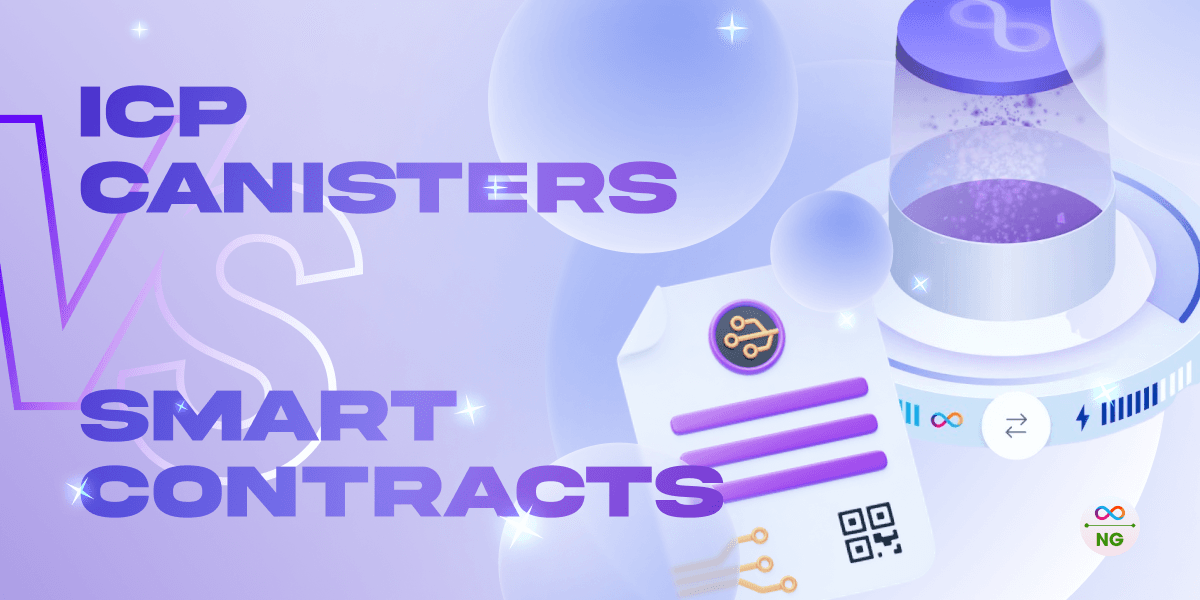
The term “smart contract” has become synonymous with blockchain-based automated agreements, but when discussing the Internet Computer Protocol (ICP), the term doesn’t fully capture the capabilities of its core computational unit: the canister. While canisters perform similar functions to smart contracts, they introduce a paradigm shift that extends beyond traditional blockchain constraints.
Here’s how canisters differentiate themselves from standard smart contracts.
State and Computation: A Unified Approach
In contrast to conventional smart contracts that often separate computation and data storage, canisters bundle both within a single unit. This fusion allows for more advanced applications, enabling complex computations while maintaining persistent state management. Canisters can store large amounts of data natively, removing the reliance on external storage solutions, a common limitation in traditional smart contract platforms.
This bundling also allows canisters to serve web content directly, making them more than just transaction executors—they function as fully decentralized web applications.
Concurrency and the Actor Model
Traditional smart contracts operate sequentially, executing transactions one at a time to maintain consistency and prevent conflicts. Canisters, on the other hand, follow the actor model, which enables concurrent message processing. This model allows canisters to execute multiple computations independently, significantly improving scalability and efficiency.
Because of this approach, ICP canisters avoid many of the congestion issues that plague other blockchain networks, where transaction processing bottlenecks can lead to slow and expensive operations.
WebAssembly (Wasm) Execution for Multi-Language Support
Most smart contracts are restricted to specific programming languages, such as Solidity for Ethereum. Canisters run on WebAssembly (Wasm), opening the door for developers to build in a variety of languages, including Rust, Motoko, and C++. This flexibility enhances developer accessibility and promotes wider adoption by reducing entry barriers.
Additionally, Wasm-based execution provides a closer relationship to how operating system processes function, giving canisters capabilities beyond traditional smart contracts.
Orthogonal Persistence: Automatic State Management
One of the biggest pain points in traditional smart contract development is managing persistent data. Canisters solve this with orthogonal persistence, meaning all state changes are automatically saved without requiring developers to manually handle storage operations. This ensures that data remains intact across upgrades, eliminating the need for external storage solutions or manual migrations.
Stable memory, a feature of ICP’s canister architecture, further enhances this by offering a structured way to maintain long-term data while allowing for seamless software upgrades.
Cycles Instead of Gas: A New Cost Model
Most blockchain networks use a gas model where users pay transaction fees directly. ICP introduces a “reverse gas” model, where canisters themselves pay for execution via cycles. This approach shifts cost burdens away from users, leading to a better user experience while ensuring predictable execution costs for developers.
This model also makes canisters more sustainable for large-scale applications, as developers can pre-fund execution costs instead of relying on fluctuating gas fees that often make smart contracts expensive to use.
Beyond Smart Contracts
Canisters are not just an alternative to smart contracts; they redefine decentralized computation by combining scalability, efficiency, and ease of use. While smart contracts focus on executing predefined logic within blockchain constraints, canisters extend blockchain’s capabilities into a full-fledged decentralized cloud environment.
With features like concurrent execution, WebAssembly support, orthogonal persistence, and a unique cost model, ICP’s canisters are shaping the future of Web3 beyond what traditional smart contracts can achieve. As blockchain technology evolves, the distinction between smart contracts and canisters becomes clearer—one is a tool for executing transactions, the other is a foundation for building the next generation of decentralized applications.